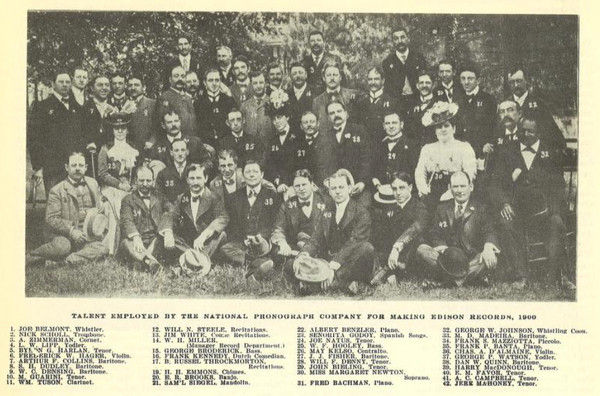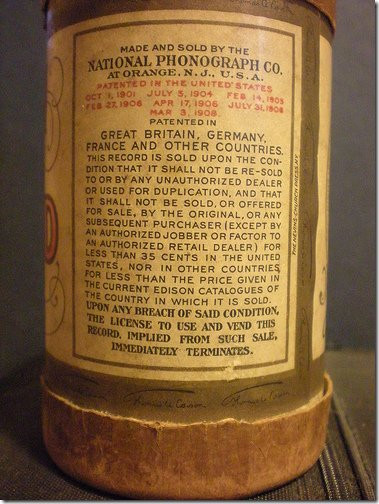National Phonograph Company
Настоящее имя: National Phonograph Company
On the heels of the bankruptcy of his North American Phonograph Company in 1894, Thomas Alva Edison organized the National Phonograph Company on January 24, 1896. This would be primarily an entertainment enterprise, responsible for the manufacture of phonographs and cylinders for home entertainment use. The company was successful. Within a few years, Edison offered a line of spring-wind phonographs to the public and he began the commercial issue of cylinders under the new company's label (Edison Records). They also opened branches of the company in Europe to sell products in that market.
Between 1896 and 1910, when the company was reorganized into Thomas A. Edison, Inc., the National Phonograph Company was responsible for manufacturing and marketing nearly ten thousand cylinder records. These included early brown wax "two-minute" cylinders and 5'-diameter Edison Concert Records. From 1902 on, wax cylinders were replaced with more durable Edison Gold Moulded Records. The National Phonograph Company also produced more than 1200 finer-grooved four-minute cylinders (Edison Amberol Record) between 1908-12.
Record products of the National Phonograph Company: Edison Records (cylinders only, between ca. 1897-1902); Edison Gold Moulded Records; Edison Standard Record; Edison Concert Record; Edison Amberol Record. In addition, this company produced prototype and sample discs in 1911.

